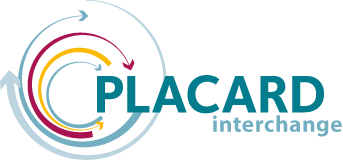2015 was a signal year for the climate change adaptation (CCA) and disaster risk reduction (DRR) communities. The Paris Agreement, together with the Sendai Framework for DRR 2015–2030, have brought new momentum for the development of policies and actions towards increasing resilience and minimising current and future risks presented by climate change. Still in its first year, how can PLACARD’s vision best be shaped to support the goals set by the most recent international agreements?
CCA and DRR have traditionally been framed differently: CCA tends to focus on addressing medium- to long-term impacts of climate related events; whilst DRR responds to existing risks and focuses on all types of hazards. CCA and DRR have also developed separate international frameworks, political processes, funding mechanisms, information exchange fora and practitioner communities. Although both communities’ overall goal is to build resilience and reduce negative impacts of climate change and disasters, coordination between both is still highly fragmented.
Guidance from Paris and Sendai may set an important milestone for CCA-DRR collaboration as well as for both communities individually.
The Paris Agreement resultant from COP21 has given unique importance to CCA, establishing a global goal on adaptation to enhance adaptive capacity, strengthen resilience and reduce vulnerability. It highlights the need for “sharing information”, “strengthening institutional arrangements”, and “strengthening scientific knowledge”. Options for engaging in adaptation planning and implementation processes are provided, including “monitoring and evaluation”, and “assessment of climate change impacts”. At the same time, the agreement recognizes certain climate hazards must be dealt with “beyond adaptation”, with the Parties deciding on the continuation of the Warsaw International Mechanism for Loss and Damage and requesting the establishment of “a clearinghouse for risk transfer (…) in order to facilitate the efforts of Parties to develop and implement comprehensive risk management strategies”.
From the DRR side, the Sendai Framework presents new targets aiming to prevent new and reduce existing disaster risks. Although not specifically providing guidance regarding climate change, it addresses it as a driver of disaster risk, and highlights the need to integrate DRR and reduce vulnerability. Amongst its priorities for action, it stresses the need to “build knowledge”, “dialogue and cooperation among scientific and technical communities”.
An opportunity for PLACARD?
PLACARD‘s vision is to become a recognised platform where dialogue, knowledge exchange and collaboration between CCA and DRR communities can take place. PLACARD will work in close collaboration with relevant institutions and be shaped by the needs and requirements of its end users which include international, EU, national and sub-national actors responsible for research, policy development and implementation of strategies for CCA and DRR.
Throughout the project, a series of events will promote dialogue between both communities. PLACARD will be present at the Adaptation Futures Conference in May 2016 and host two sessions aimed at complementing CCA and DRR policy and practice at different governance scales, and exploring the potential of ecosystem based approaches for CCA and DRR. It will also be co-organising ICLEI’s Open European Day in July 2016. Regional workshop series will address different priorities and needs across Europe. PLACARD will also facilitate Webinars and live online discussions to enhance knowledge exchange between researchers, policymakers and practitioners.
By providing a common space for both communities to come together, the project aims to address gaps and fragmentation challenges in current CCA and DRR research, policymaking and practice, and support the development and implementation of an evidence base for research and innovation policies.
In the coming years, and as new policies and actions arise from the aftermath of COP 21 and Sendai, PLACARD will provide an important space for dialogue. This can be a critical opportunity for CCA and DRR communities to take on board. By collaborating and enhancing cooperation, an opportunity may be created to get closer to fulfilling the goals posed by the new international agreements.

